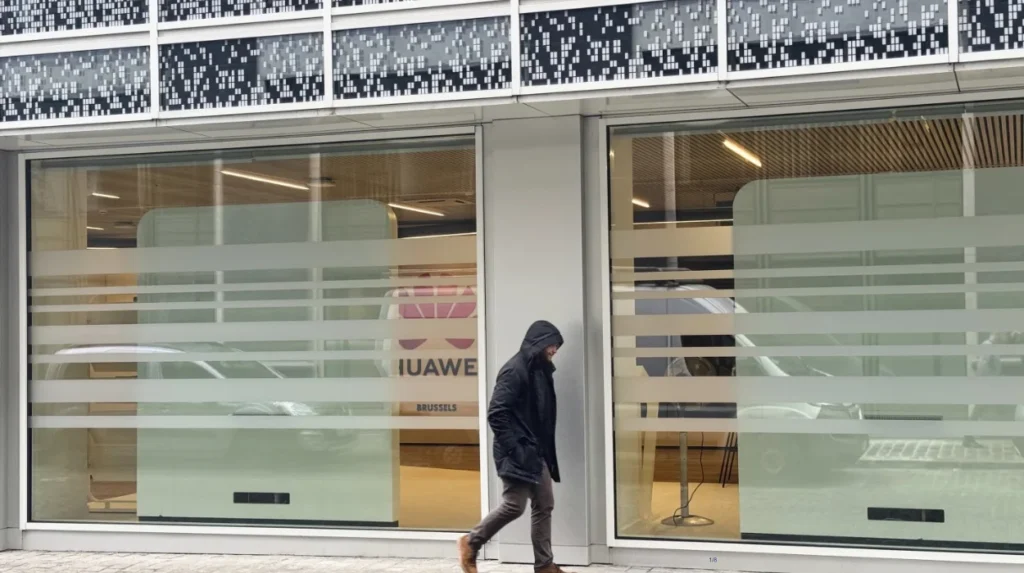A significant corruption scandal has erupted in Brussels involving Chinese telecommunications giant Huawei and its lobbying operations within the European Parliament. The scandal reached a new peak with the arrest of Valerio Ottati, Huawei’s chief lobbyist in the EU and a former European Parliament adviser, who is accused of orchestrating bribery schemes to influence Members of the European Parliament (MEPs) in favor of Huawei’s interests.
The Core of the Scandal: Bribery and Corruption Allegations
Belgian prosecutors have charged Ottati and several other Huawei executives with active corruption, money laundering, and membership in a criminal organization. The investigation reveals that between 2021 and 2025, Huawei allegedly operated a clandestine network offering gifts, cash payments, and favors to MEPs and parliamentary staff, disguised as legitimate lobbying activities.
Ottati reportedly boasted openly about having “MEPs on my payroll” and was known for saying,
“We need to make sure there’s a nice gift under this MEPs’ Christmas tree,”
reflecting the brazen nature of the alleged corruption. These gifts and favors reportedly included lavish dinners, trips to China, football match tickets, and even Huawei smartphones.
The Letter That Sparked Suspicion
A key piece of evidence in the investigation is a letter drafted by Ottati and signed by eight MEPs in January 2021. The letter criticized the European Union’s ban on Huawei’s 5G technology, condemning it as “technological racism” and accusing the EU of politicizing 5G deployment. Prosecutors allege that Huawei paid up to €25,500 to the letter’s writer and offered €1,500 to each co-signatory to secure their support.
This letter was sent to the European Commission as a lobbying tool to counteract the EU’s growing security concerns regarding Huawei’s involvement in critical 5G infrastructure.
Scope of the Investigation and Police Actions
The Belgian federal prosecutor’s office has conducted extensive raids, executing 21 searches across Belgium and Portugal, targeting residences and offices linked to Huawei lobbyists. Approximately 100 police officers were involved in these operations. Several individuals, including Ottati, have been detained and questioned, though no sitting MEPs have been arrested due to parliamentary immunity.
Authorities are also seeking to lift the immunity of five MEPs allegedly involved in the bribery network to advance the investigation.
Huawei’s Lobbying Tactics and EU Response
Huawei’s lobbying efforts in Brussels have been described as lavish and persistent. The company hosted extravagant events, including Chinese New Year celebrations with buffets and dance performances, and frequently rewarded contacts with generous gift bags containing Huawei products.
Following the emergence of the scandal, the European Parliament imposed a temporary ban on Huawei lobbyists entering its premises. This ban covers all parliamentary locations, including Brussels, Strasbourg, Luxembourg, and liaison offices across the EU’s 27 member states. The ban will remain until the conclusion of the ongoing investigation.
Despite the ban, concerns remain that Huawei lobbyists might circumvent restrictions through visitor passes or by lobbying via umbrella trade associations still representing the company.
Statements from Huawei and Transparency Advocates
Huawei has publicly responded to the allegations, stating that it
“takes the allegations seriously”
and maintains a
“zero tolerance policy towards corruption or other wrongdoing.”
The company pledged to cooperate fully with authorities to clarify the situation.
Transparency advocates have condemned the scandal as a severe blow to democratic integrity within the European Parliament. Nicholas Aiossa, director at Transparency International EU, remarked that the allegations
“make a mockery of democracy at the European Parliament”
and criticized MEPs for a “carefree approach to ethics” and a culture of impunity that persists in Brussels.
Context: EU’s Vulnerability to Foreign Influence
This scandal highlights the European Union’s ongoing vulnerability to foreign influence and corruption within its institutions. It follows closely on the heels of the 2022 “Qatargate” scandal, where several EU lawmakers were accused of accepting payments to promote interests of Qatar and Morocco.
Huawei’s case is particularly sensitive due to longstanding geopolitical tensions. Many Western countries, including the US, UK, Australia, and several EU member states, have expressed concerns about Huawei’s alleged ties to the Chinese government and potential security risks posed by its technology. Huawei has consistently denied these accusations, asserting its independence from any government influence.
Legal and Political Implications
The charges against Ottati and other Huawei executives include corruption, money laundering, forgery, and participation in a criminal organization. Belgian prosecutors are pursuing a comprehensive investigation into these offenses, which may lead to lifting the immunity of implicated MEPs to hold them accountable.
This case raises critical questions about the effectiveness of the EU’s ethics and transparency frameworks, especially regarding lobbying activities by foreign corporations. Experts like Alberto Alemanno, Jean Monnet Professor of EU Law, have pointed out that the current system is “not fit for the job” in preventing such abuses.







